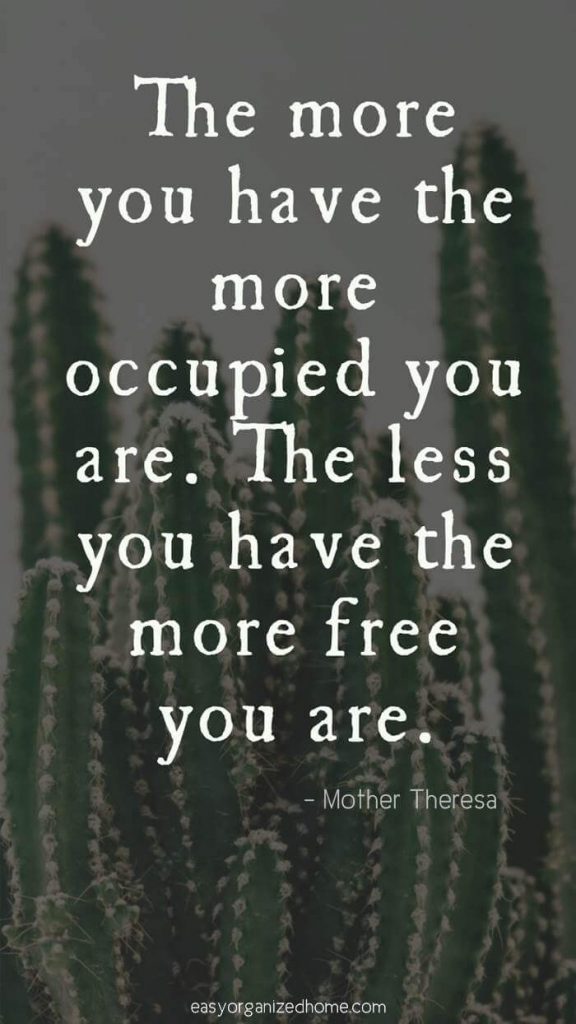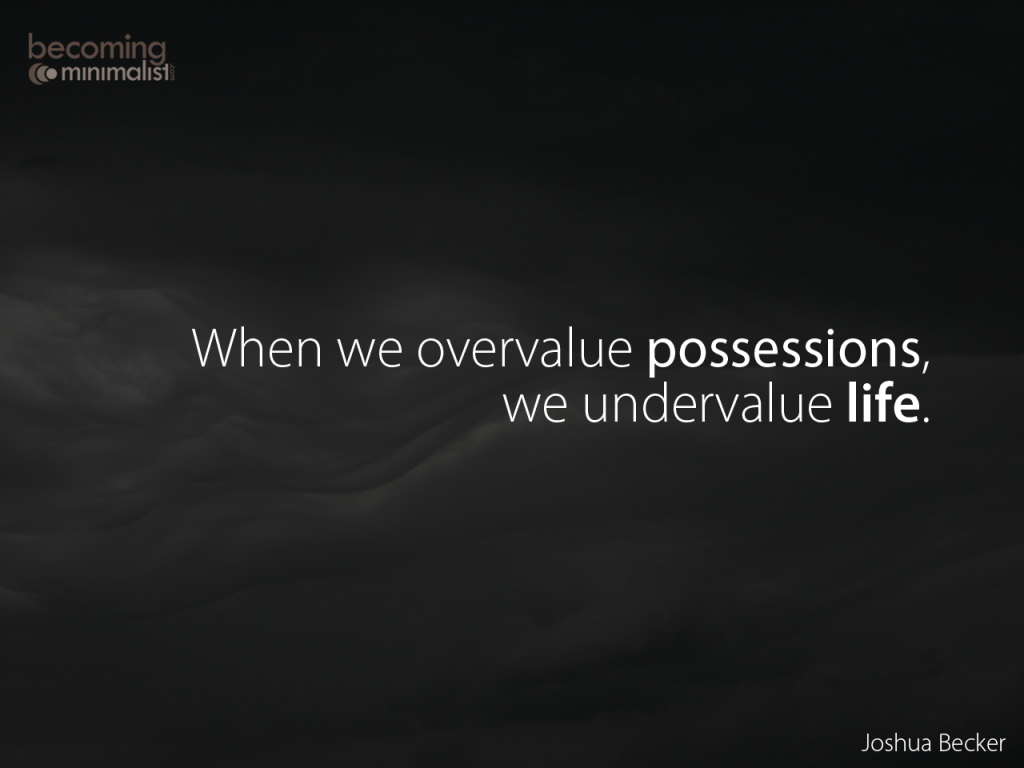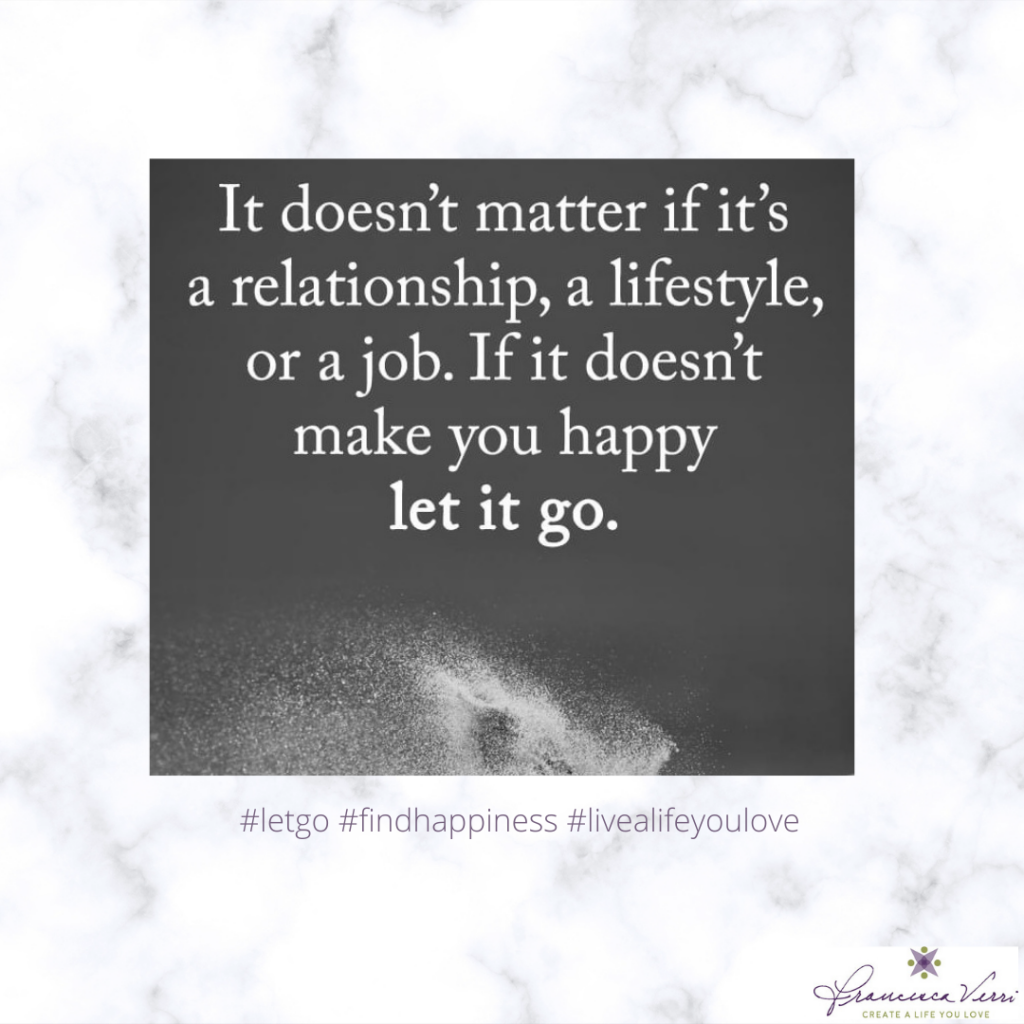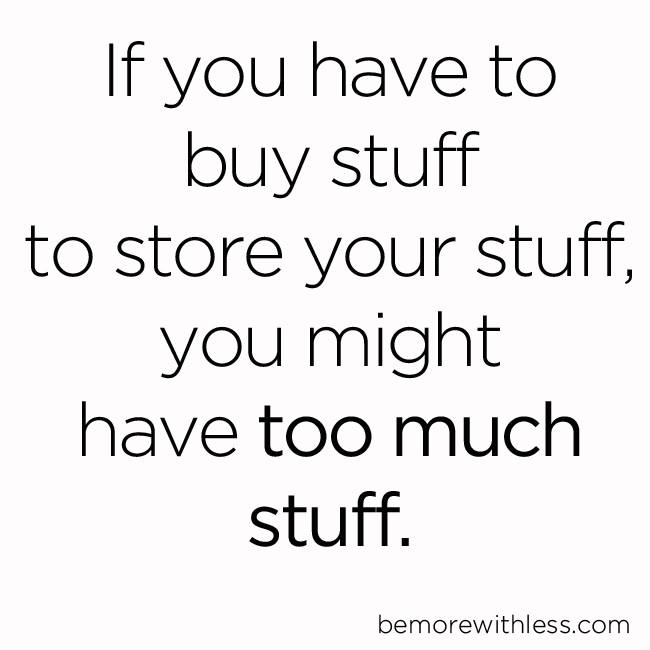Ahh, decluttering. It is definitely not an appealing task for most people. And it is a necessary one if you want to live an intentional life with less stress and frustration.
There are many reasons people struggle to declutter. Understanding the why behind it can help you move beyond the road block and forward, in the direction of a fulfilled life. Here are eight reasons you likely struggle to declutter, and how you can overcome them.
1. You don’t know where to start.
Knowing where to start when doing anything can not only make the task less overwhelming but perhaps even more appealing. When you can reduce something that is daunting (like decluttering) to do-able it can give you just enough motivation to not only start, but to continue through to completion. The answer to where to start is simple: start small. Small means breaking down the large task to smaller, more manageable tasks. Instead of thinking of your whole house, or even an entire room, break it down to a closet, a cabinet, a desk, a drawer. Starting small allows you to make visible progress, which feels good. And it lessens that feeling of overwhelm that often accompanies “too much”.
2. You don’t have enough time.
Or so you think you don’t. Here is the irony in thinking you don’t have time. Having too much excess or clutter in your living and working space skews your perception of time. It makes you feel under the gun, stressed, and without enough time to do any number of important things. You don’t feel you have enough time to cook a healthy meal, have a meaningful, long conversation with a friend or loved one. And you might feel you don’t have time to workout, find fulfilling work, or even tidy up and clean your space.
First, remind yourself that you do have time. We all get the same 24 hours. We just have to learn how to use it more wisely.
Second, use your schedule to your advantage. The best way to see your time more clearly is to schedule it. You do not have to do all the decluttering all at once. Talk about overwhelming! Schedule in chunks of time – 15-30 minute blocks – to lighten your load daily or weekly. And repeat as much as needed until your space feels lighter. Decluttering in this way can be contagious. The more you do, the more you want to do. That light feeling or less often breeds a desire to feel more lightness.

3. You don’t know how to declutter.
You aren’t alone. A lot of people don’t feel they know how to declutter and frankly, might not feel like they can be uncluttered at all. Here is what I know for sure: Gaining a feeling of lightness and order is learned. If you have a desire to feel a certain way, you can learn to be more organized/tidy/neat/minimal. I suggest you start by thinking about your vision for your life and your space. Ask yourself how you want to feel and get really clear on your “why”.
When you are clear on your why and what you want to feel, you will make easier work of deciding on what stays and what goes.
Then, give decluttering a try by doing these two things. Start with a small area (remember tip #1) to exercise your decluttering muscle, and set your 15 minutes to go through the space discarding everything that you can obviously see is trash. These are items that are broken or damaged, too worn, and beyond repair. Or, it can also be literal trash – empty food containers, wrappers, boxes, etc. Toss the trash.
Then, go through the space again and remove from it anything that doesn’t belong in the space. The shirt you borrowed from your friend and have yet to return fits in that category, as does anything else you have borrowed or anything you are saving with the intention of giving it to someone else. Remove those items. Put them in your car or by the door to be mailed or dropped off to the appropriate home.
This is a great start to decluttering thoroughly. And once you try it, you will realize you can do it. And importantly, will feel more confident to keep doing it.
4. You feel guilty over getting rid of something that cost money.
We all make mistakes and spend money to buy things we don’t really need and never use. We also spend money to buy things we did need and used all the time but it has run it’s course. The reality is that you already spent the money. Keeping what you don’t like, need, or use won’t get your money back.
Keeping things because you feel you are throwing away money costs you as well, perhaps more than you think. It costs you in energy spent navigating space that is cluttered with these things. It costs you in time wasted looking for things that are buried under and around clutter. And it costs you in your mind being over-extended trying mentally to stay on top of routines and to dos that can be addressed better when the area is clear, neat and tidy.
Purge, let go, lighten the load of what you don’t like, need or use so you can stop “spending” and start living.

5. You feel wasteful getting rid of something in good condition.
I hear this excuse a lot and I understand the desire to want to keep what you already own because it still works or looks new. But if you don’t love something and aren’t using it it is more wasteful for you to keep it. Someone else can use what you donate, give away or sell. Think of it as an act of kindness and living intentionally to let go of things that are in good condition that you aren’t using, don’t need or love. Then spend time focusing on the things in your home that you do like, need and use, things that make you happy and bring you joy.
6. You feel guilt or obligation to keep something.
This usually happens with gifts or family heirlooms. You feel that the generosity given is hinged upon you keeping that gift. Or that your family legacy rests in that antique vase. Remember how you want to feel in your space and your life. A gift or heirloom might not fit that vision. Keeping it only makes you feel weighted. Keep what feels good and right for you. Everything else gifted or bequeathed that doesn’t, must go.
For gifts:
Try to think of the gift as something that was given to show you love or appreciation. You can be grateful for the sentiment and still not like the gift, or find that overtime it just doesn’t work. The gift served its purpose as an expression of love and kindness. If you don’t like it, need it, or use it, let it go.

For heirlooms:
Think about who is making you feel guilty. Maybe it is you projecting guilt, or fear that giving up the item means you give up the connection with the person who bequeathed it. Let go of that heaviness. It served its purpose, had it turn. Now it is time to let it go.
A quick note: you can offer it to another family member – maybe someone who is contributing to your guilt or who might have better use for it and therefore deem it important to keep.
The bottom line: You don’t lose if you let go of an item that you don’t want. You only gain a sense of freedom.
For sentimental items:
Sentimental items bring back memories and we often attach the memory to the item. The truth is, the memory is in your head forever. The item you don’t like, need or use, isn’t keeping the memory alive. It might, however, be bringing heaviness and guilt to your heart. Don’t be afraid to let it go.
7. You think you need to organize when you really need to declutter.
We all want to jump to the fun part of buying decorative bins and boxes to “organize” our stuff. Organization and putting systems in place is not the answer – at least it is not the first stop on train to living intentionally, minimally and light. Organizing what you don’t like, need, or use wastes space, time, and money! And eventually all those things you organized into bins and containers will either make their way back out into your space, or stay tucked away, taking up space and weighing, perhaps silently but heavily, on you.
The bottom line if you feel overwhelmed, fatigued, cluttered is that you have too much. And you need to declutter so you can see, and use what is most important and useful. Once you get rid of the clutter and clearly see what is purposeful, then you will know what to organize and streamline.

8. You don’t know what do to with what you declutter.
I actually hear this reason more often than you might think. And I understand it. There is a ton of fear around letting go of so much and wanting it to go somewhere that isn’t a landfill. There is also a worry about letting go and feeling burdened by having to “dispose” in some way of what you no longer need. It is overwhelming. Knowing what you can do with all that you are willing to let go of can make you feel more comfortable starting the process.
When you declutter you have three options for how to discard. You can put it in the trash or recycle, donate it, or sell it.
Anything that is broken, damaged beyond repair, or severely worn can be trashed or recycled.
For recycling outside of what you can do at your local transfer station, search the web for places that recycle textile items, and the like.
Donate things that are gently used, in good condition to churches, schools, or donation centers.
Do an online search for places near you. As well there are a number of charitable organizations that take donations (nationally). You can find a list of the top eight here.
Sell items that are in good-excellent condition.
A few places to consider are Facebook Marketplace, Thred Up, or even online consignment apps like Curtsy.
A note about selling:
Selling items can take a lot of time. You have to take pictures and post them, coordinate with potential buyers. All of it can slow your decluttering process. If you want to sell, I suggest you don’t try to sell everything. Perhaps choose a few key items that you know will sell well and give you a good return on investment, but won’t slow your progress or zap your motivation to keep moving forward.
In all of this, recognize your why. Acknowledging why you struggle to declutter is important! As with many things in life, once you name the problem, and face it, you can more easily move through and beyond the obstacle.





That was excellent. And now just start!